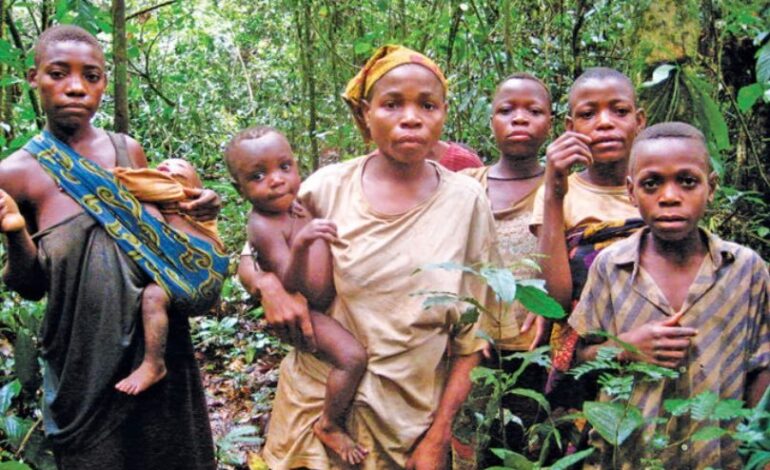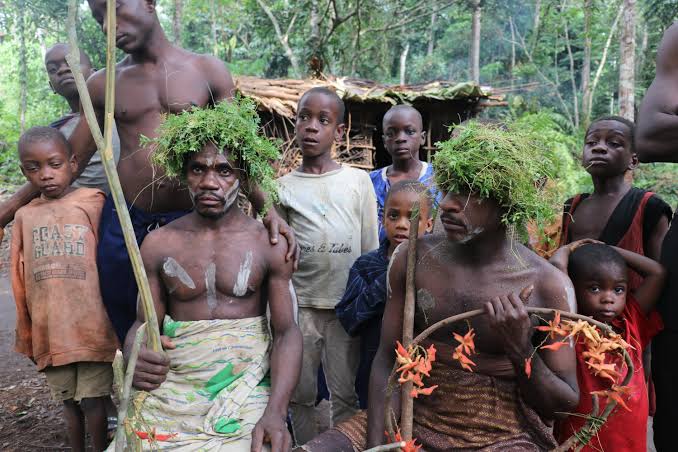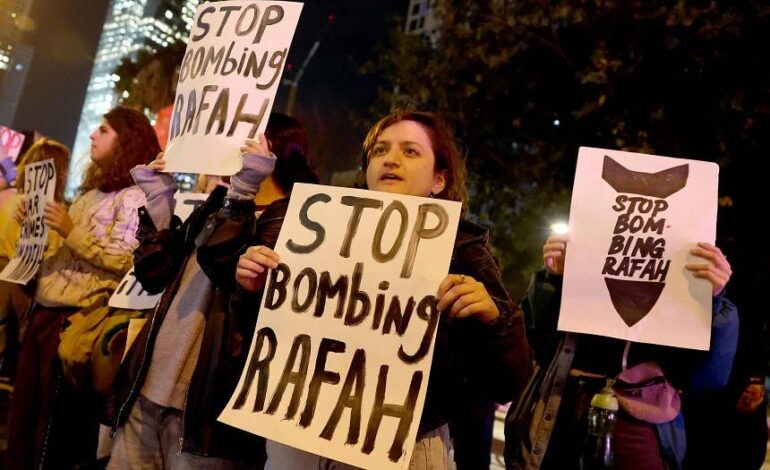
Faith Nyasuguta
In the dense forests of the Democratic Republic of the Congo (DRC), the Pygmies, recognized as the world’s shortest ethnic group, have endured over a century of hardship, transitioning from a history marked by forced labor and assault under Belgian colonial rule to facing ongoing oppression and exploitation in contemporary times.
The exact number of Indigenous Pygmy People in the DRC is unknown. The government estimates it at around 700,000 (1% of the Congolese population) but Civil Society Organizations give a figure of up to 2,000,000 (3% of the population). They are widely acknowledged as the first inhabitants of the national rainforests.
“The Pygmies’ history is deeply intertwined with the darkest chapters of colonial exploitation, where their ancestors suffered unimaginable atrocities under King Leopold II of Belgium. It’s a legacy of profound injustice that continues to shape their struggles today,” remarks Dr. Evelyn Mabanza, a historian specializing in African colonial history.
Fast forward to the present day, and the Pygmies continue to face challenges, albeit in a different form. The lush forests that were once their sanctuary have become battlegrounds for the exploitation of natural resources, particularly minerals.
Foreign countries, seeking to meet the growing demand for minerals, have turned their attention to the rich deposits present in the Pygmy-inhabited regions.
“The global demand for minerals has inadvertently placed vulnerable communities like the Pygmies in the crosshairs of exploitation. Their ancestral lands are now zones of conflict, with external forces prioritizing profit over the well-being of indigenous peoples,” notes Dr. Alicia Kabongo, an expert in sustainable development.

The mining industry’s encroachment into Pygmy territories has led to the displacement of these indigenous people. “Our lands are not just resources; they are our identity, our heritage. The forced displacement for mining activities is a direct assault on our existence,” laments Mbuti, a Pygmy community leader.
Despite the international spotlight on ethical sourcing and responsible mining practices, the exploitation of Pygmies continues, highlighting the persistent challenges faced by indigenous communities in safeguarding their rights and cultural heritage.
“Ethical considerations often take a backseat to economic interests in the global resource supply chain. It’s crucial for mining corporations and governments to prioritize ethical practices that respect the rights and dignity of indigenous communities like the Pygmies,” emphasizes Dr. Sarah Thompson, an anthropologist specializing in indigenous rights.
NGOs and advocacy groups are increasingly raising awareness about the plight of the Pygmies, emphasizing the need for ethical and sustainable practices in the mining industry.
“The Pygmies’ struggle is not just a local issue; it’s a global concern that calls for collective action. Consumers, corporations, and governments must work together to ensure that indigenous rights are respected and protected,” urges Dr. Joseph Nkongolo, an advocate for indigenous rights.
As the global community grapples with the ethical dimensions of resource extraction and the impact on indigenous populations, the Pygmies of the Democratic Republic of the Congo stand as a poignant symbol of the complex interplay between historical injustices and contemporary challenges.
The story of the Pygmies serves as a call to action, urging stakeholders to address the root causes of exploitation and work towards a future where indigenous communities can thrive in harmony with their ancestral lands.
RELATED:




